The book club began in September 2006 and has had a fantastic group of people supporting it ever since. It is linked to the World Shop Bookshop, which stocks all of the titles that the bookclub chooses to read, and offers the public and bookclub members a discount for whichever title the bookclub has voted for that month.
The bookclub meets once a month to discuss new and classic international fiction. We aim to support the work of authors from the Majority World, that is, Africa, Asia, South and Central America and the Caribbean, by reading their novels and poetry. Some of these authors do not get major press recognition and struggle to find a market for their work, so there are often titles that the Bookshop stocks and the bookclub reads that might seem obscure. We all think this is a great way to support these authors. Sometimes titles by these inspiring authors do get recognised in the mainstream bookshops, which is also fantastic, and so there is always a mix of books.
Over the last few years, we have read books from an amazing range of countries and authors, for example, Sri Lanka, Egypt, Angola, Palestine, Malaysia, Nigeria, India, China, Chile, Pakistan, Zimbabwe, Afghanistan, Sudan, Jamaica, Iran, UK, Libya, Mexico, and many many others.
to join the book club and be added to our mailing list, please contact carl
upcoming books
check back soon for upcoming events
previous books
-
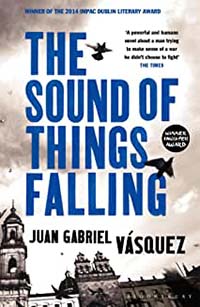
 Thu 30th April 2020
risc book club: the sound of things fallingBy Juan Gabriel Vásquez - No sooner does he get to know Ricardo Laverde in a seedy billiard hall in Bogotá than Antonio Yammara realises that the ex-pilot has a secret. Antonio's fascination with his new friend's life grows until the day Ricardo receives a mysterious, unmarked cassette. Shortly afterwards, he is shot dead on a street corner. Yammara's investigation into what happened leads back to the early 1960s, marijuana smuggling and a time before the cocaine trade trapped Colombia in a living nightmare.
Thu 30th April 2020
risc book club: the sound of things fallingBy Juan Gabriel Vásquez - No sooner does he get to know Ricardo Laverde in a seedy billiard hall in Bogotá than Antonio Yammara realises that the ex-pilot has a secret. Antonio's fascination with his new friend's life grows until the day Ricardo receives a mysterious, unmarked cassette. Shortly afterwards, he is shot dead on a street corner. Yammara's investigation into what happened leads back to the early 1960s, marijuana smuggling and a time before the cocaine trade trapped Colombia in a living nightmare. -
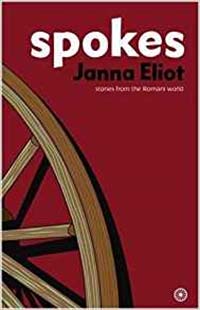
 Thu 26th March 2020
risc book club: stories from the romani worldBy Janna Eliot - Spokes is made up of stories from across the Traveller world, featuring British Gypsies, settled and still travelling; Irish Travellers, East European Roma; and people whose Romani background has remained under wraps in the face of a hostile world. There's an old violinist, a middle-aged mechanic, a young radio presenter, a schoolboy, a retired banker, a tealady and a teacher. Sometimes humorous, sometimes tragic; every story is based on real incidents.
Thu 26th March 2020
risc book club: stories from the romani worldBy Janna Eliot - Spokes is made up of stories from across the Traveller world, featuring British Gypsies, settled and still travelling; Irish Travellers, East European Roma; and people whose Romani background has remained under wraps in the face of a hostile world. There's an old violinist, a middle-aged mechanic, a young radio presenter, a schoolboy, a retired banker, a tealady and a teacher. Sometimes humorous, sometimes tragic; every story is based on real incidents. -
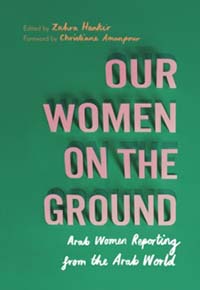
 Thu 27th February 2020
risc book club: our women on the groundBy Zahra Hankir - Nineteen Arab women journalists speak out about what it’s like to report on their changing homelands in this first-of-its-kind essay collection, with a foreword by CNN chief international anchor Christiane Amanpour. 304pp
Thu 27th February 2020
risc book club: our women on the groundBy Zahra Hankir - Nineteen Arab women journalists speak out about what it’s like to report on their changing homelands in this first-of-its-kind essay collection, with a foreword by CNN chief international anchor Christiane Amanpour. 304pp -
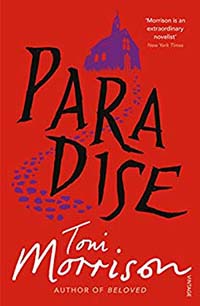
 Thu 30th January 2020
risc book club: paradiseBy Toni Morrison - Spanning the birth of the Civil Rights movement, Vietnam, the counter-culture and politics of the late 1970s, deftly manipulating past, present and future, this novel reveals the interior lives of the citizens of the town with astonishing clarity. Starkly evoking the clashes that have bedevilled the American century: between race and racelessness; religion and magic; promiscuity and fidelity; individuality and belonging. pp336
Thu 30th January 2020
risc book club: paradiseBy Toni Morrison - Spanning the birth of the Civil Rights movement, Vietnam, the counter-culture and politics of the late 1970s, deftly manipulating past, present and future, this novel reveals the interior lives of the citizens of the town with astonishing clarity. Starkly evoking the clashes that have bedevilled the American century: between race and racelessness; religion and magic; promiscuity and fidelity; individuality and belonging. pp336 -
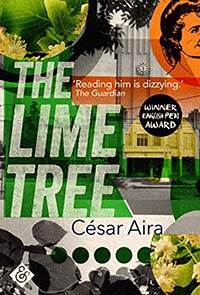
 Thu 19th December 2019
risc book club: the lime treeBy César Aira - In the town square of Coronel Pringles stands a lime tree from which the author’s father used to brew a sedative tea. This Proustian infusion evokes dark memories of the 1955 anti-Perónist revolution, which dashed the family’s middle-class dreams. The Lime Tree is a portrait of the artist as a child and a lucid analysis of a family's social trajectory. 256pp
Thu 19th December 2019
risc book club: the lime treeBy César Aira - In the town square of Coronel Pringles stands a lime tree from which the author’s father used to brew a sedative tea. This Proustian infusion evokes dark memories of the 1955 anti-Perónist revolution, which dashed the family’s middle-class dreams. The Lime Tree is a portrait of the artist as a child and a lucid analysis of a family's social trajectory. 256pp -
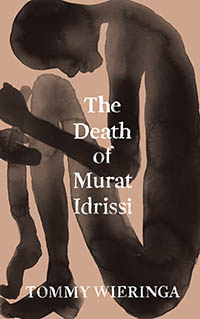
 Thu 28th November 2019
risc book club: the death of musrat idrissiTwo venturesome women on a journey through the land of their fathers and mothers. A wrong turn. A bad decision. They had no idea, when they arrived in Morocco, that their usual freedoms as young European women would not be available. So, when the spry Saleh presents himself as their guide and saviour, they embrace his offer.
Thu 28th November 2019
risc book club: the death of musrat idrissiTwo venturesome women on a journey through the land of their fathers and mothers. A wrong turn. A bad decision. They had no idea, when they arrived in Morocco, that their usual freedoms as young European women would not be available. So, when the spry Saleh presents himself as their guide and saviour, they embrace his offer. -
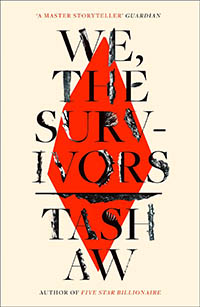
 Thu 31st October 2019
risc book club: we, the survivorsAh Hock is an ordinary, uneducated man born in a Malaysian fishing village and now trying to make his way in a country that promises riches and security to everyone, but delivers them only to a chosen few. With Asian society changing around him, like many he remains trapped in a world of poorly paid jobs that just about allow him to keep his head above water but ultimately lead him to murder a migrant worker from Bangladesh. This is a portrait of an outsider like no other, an anti-nostalgic view of human life and the ravages of hope.
Thu 31st October 2019
risc book club: we, the survivorsAh Hock is an ordinary, uneducated man born in a Malaysian fishing village and now trying to make his way in a country that promises riches and security to everyone, but delivers them only to a chosen few. With Asian society changing around him, like many he remains trapped in a world of poorly paid jobs that just about allow him to keep his head above water but ultimately lead him to murder a migrant worker from Bangladesh. This is a portrait of an outsider like no other, an anti-nostalgic view of human life and the ravages of hope. -
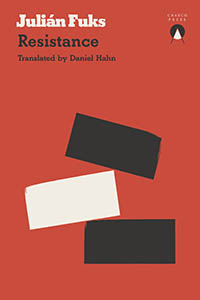
 Thu 26th September 2019
risc book club: resistanceIn the terrifying atmosphere of late 1970s Buenos Aires, a young militant couple engaged in the resistance against the military regime adopt a child. Matters had reached a nadir; people were informing on friends and family members, who were then captured by the regime and subjected to horrific torture. Amid this ever-growing oppression, the couple and their baby flee to Brazil, believing it to be a more tranquil country in which to raise a family and pursue their lives.
Thu 26th September 2019
risc book club: resistanceIn the terrifying atmosphere of late 1970s Buenos Aires, a young militant couple engaged in the resistance against the military regime adopt a child. Matters had reached a nadir; people were informing on friends and family members, who were then captured by the regime and subjected to horrific torture. Amid this ever-growing oppression, the couple and their baby flee to Brazil, believing it to be a more tranquil country in which to raise a family and pursue their lives. -
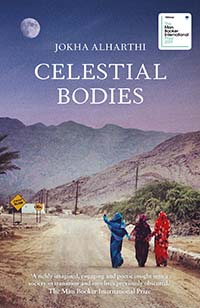
 Thu 29th August 2019
risc book club: celestial bodiesSet in the village of al-Awafi in Oman, we encounter three sisters: Mayya, who marries Abdallah after a heartbreak; Asma, who marries from a sense of duty; and Khawla, who rejects all offers while waiting for her beloved, who has emigrated to Canada. These three women and their families witness Oman evolve from a traditional, slave-owning society slowly redefining itself after the colonial era, to the crossroads of its complex present. Elegantly structured and taut, Celestial Bodies is a coiled spring of a novel, telling of Oman's coming-of-age through the prism of one family's losses and loves.
Thu 29th August 2019
risc book club: celestial bodiesSet in the village of al-Awafi in Oman, we encounter three sisters: Mayya, who marries Abdallah after a heartbreak; Asma, who marries from a sense of duty; and Khawla, who rejects all offers while waiting for her beloved, who has emigrated to Canada. These three women and their families witness Oman evolve from a traditional, slave-owning society slowly redefining itself after the colonial era, to the crossroads of its complex present. Elegantly structured and taut, Celestial Bodies is a coiled spring of a novel, telling of Oman's coming-of-age through the prism of one family's losses and loves. -
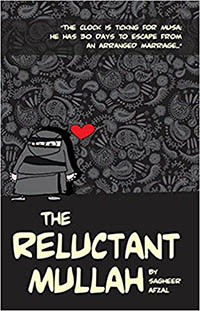
 Thu 25th July 2019
risc book club: the reluctant mullahAlone in his room in a London madrasah, Musah tries on an abaya, a hijab and a shawl: he has crossed over - to outsiders he has become a Muslim woman. In a Pakistani haveli, his cousin, the nubile Iram, waits to fulfil the will of Dadaji, their grandfather. She and Musa must marry. When Musa's siblings and friends step in to help him fight tradition and achieve what he wants - a love match - their efforts lead to outrage, hilarity and, ultimately, tragedy.
Thu 25th July 2019
risc book club: the reluctant mullahAlone in his room in a London madrasah, Musah tries on an abaya, a hijab and a shawl: he has crossed over - to outsiders he has become a Muslim woman. In a Pakistani haveli, his cousin, the nubile Iram, waits to fulfil the will of Dadaji, their grandfather. She and Musa must marry. When Musa's siblings and friends step in to help him fight tradition and achieve what he wants - a love match - their efforts lead to outrage, hilarity and, ultimately, tragedy. -
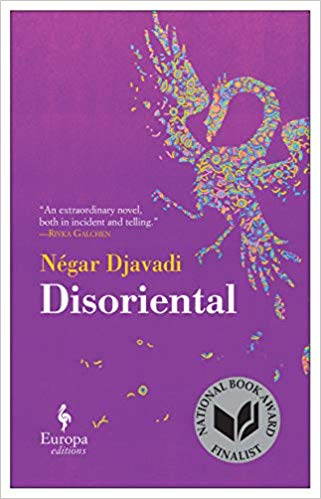
 Thu 27th June 2019
risc book club: disorientalBy Negar Djavadi (tr by Tina Kover) – Iran/France
Thu 27th June 2019
risc book club: disorientalBy Negar Djavadi (tr by Tina Kover) – Iran/France
Kimiâ Sadr fled Iran at the age of ten in the company of her mother and sisters to join her father in France. Now twenty-five and facing the future she has built for herself as well as the prospect of a new generation, Kimiâ is inundated by her own memories and the stories of her ancestors, which come to her in unstoppable, uncontainable waves. In the waiting room of a Parisian fertility clinic, generations of flamboyant Sadrs return to her, including her formidable great-grandfather Montazemolmolk, with his harem of fifty-two wives, and her parents, Darius and Sara, stalwart opponents of each regime that befalls them.
In this high-spirited, kaleidoscopic story, key moments of Iranian history, politics, and culture punctuate stories of family drama and triumph. Yet it is Kimiâ herself––punk-rock aficionado, storyteller extraordinaire, a Scheherazade of our time, and above all a modern woman divided between family traditions and her own “disorientalization”––who forms the heart of this bestselling and beloved novel. 320pp -
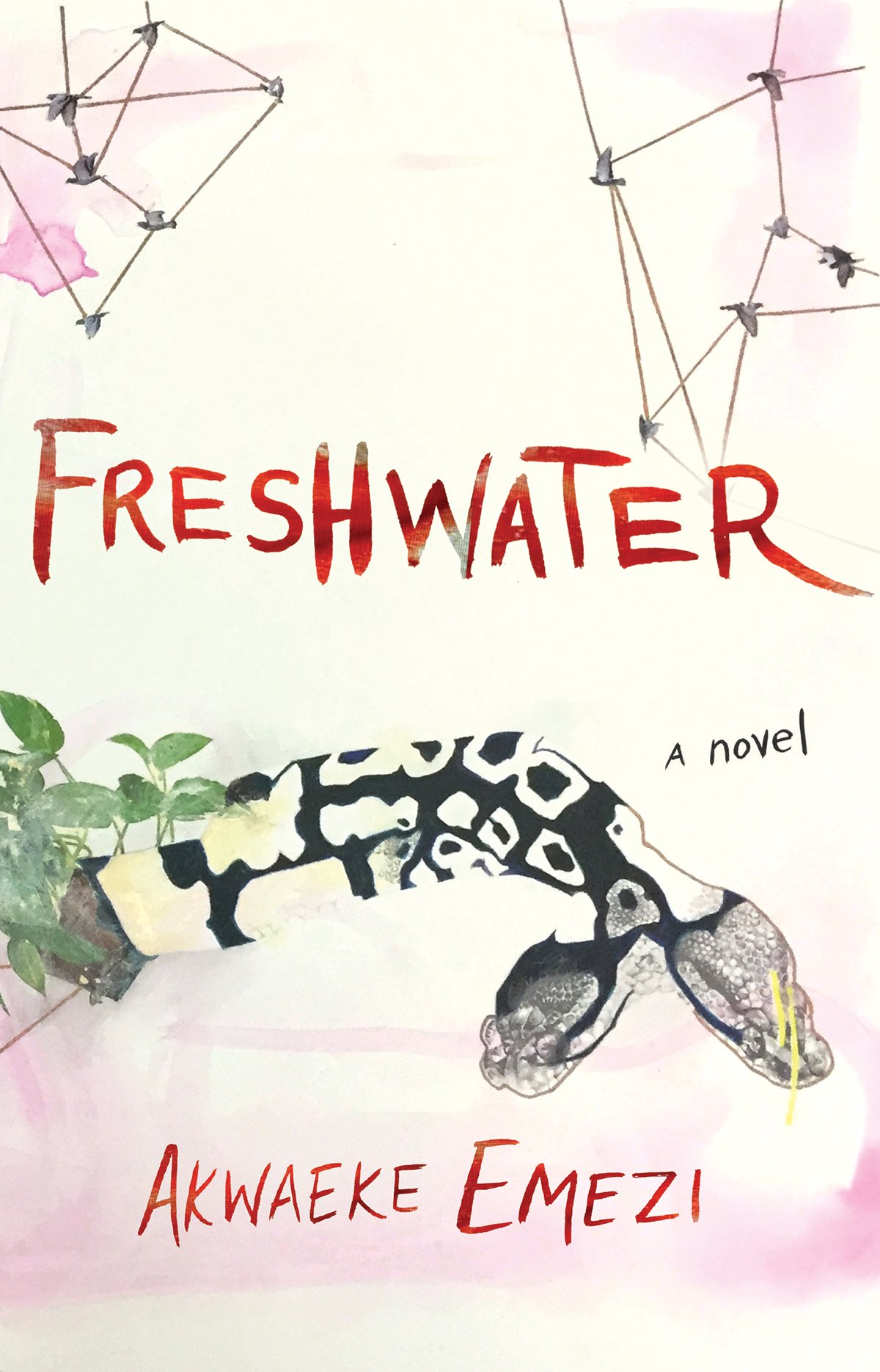
 Thu 30th May 2019
risc book club: freshwaterBy Akwaeke Emezi – Nigeria (hardback £10)
Thu 30th May 2019
risc book club: freshwaterBy Akwaeke Emezi – Nigeria (hardback £10)
Ada is the second child of Saul, a Nigerian doctor, and his Malaysian wife Saachi, a nurse. When Ada is still a child, Saachi leaves to work abroad, first in Saudi Arabia and then in the UK. Although she visits her family in Nigeria once or twice each year, she will never again live in the home she once made with her proud and impatient husband. At 16, Ada also leaves Nigeria, for the United States, where she spends her turbulent college years in Virginia. All the while, there is a claim on her head , “for being born incorrectly, for not returning, for crossing the ocean sifted with death”. While the effects of this claim might read like a curse, they are really a manifestation of a demand that she follow a predestined path. Ada is an ogbanje, a spirit child who is born repeatedly to the same parents, taunting and torturing them with many reincarnations. While most ogbanjes die as children, Ada survives into adulthood, constantly struggling against a pull towards self-annihilation.
When Ada finds a measure of peace, it is not a consequence of eliminating any of her selves: instead, it emanates from accepting that she is “a village full of faces and a compound full of bones, translucent thousands”. When we return to Nigeria, the narrator is Ada: not the tortured Ada who made her way tentatively into earlier chapters in the form of poems and diary entries, but a voice infused with We’s poetic cadence and Asughara’s blistering yet intimate tone. It is a fitting culmination for the extraordinary journeyFreshwater charts, a manifestation of Ada’s realisation that she is irrevocably an amalgamation of all her varied and even divergent selves. 240pp -
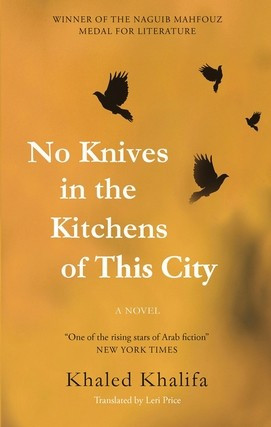
 Thu 25th April 2019
risc book club: No Knives in the Kitchens of This Cityby Khaled Khalifa (tr by Leri Price) – Syria
Thu 25th April 2019
risc book club: No Knives in the Kitchens of This Cityby Khaled Khalifa (tr by Leri Price) – Syria
Khalifa portrays his native city under the grip of the Assad regimes though the lives of one family over three generations. In the once beautiful city of Aleppo, the family descends into tragedy and ruin. Irrepressible Sawsan flirts with militias, the ruling party, and finally religion, seeking but never finding salvation. She and her siblings and mother are slowly choked in violence and decay, as their lives are plundered by a brutal regime. Set between the 1960s and 2000s, the novel unravels the systems of fear and control under Assad. With eloquence and startling honesty, it speaks of the persecution of a whole society. The story shifts in time and between characters, but Aleppo as a character is a constant, its culture and cuisine, a city with a vibrant life. Khalifa, in lush and sensual prose, chronicles the collapse of the city: “Cities die, just like people.” 256pp -
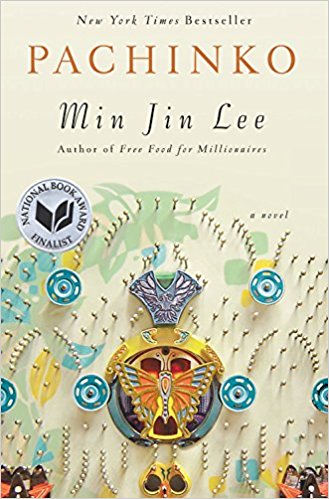
 Thu 28th March 2019
risc book club: pachinkoBy Min Jin Lee – Korea/Japan
Thu 28th March 2019
risc book club: pachinkoBy Min Jin Lee – Korea/Japan
Yeongdo, Korea 1911. In a small fishing village on the banks of the East Sea, a club-footed, cleft-lipped man marries a fifteen-year-old girl. The couple have one child, their beloved daughter Sunja. When Sunja falls pregnant by a married yakuza, the family face ruin. But then Isak, a Christian minister, offers her a chance of salvation: a new life in Japan as his wife.
Following a man she barely knows to a hostile country in which she has no friends, no home, and whose language she cannot speak, Sunja's salvation is just the beginning of her story. Through eight decades and four generations, Pachinko is an epic tale of family, identity, love, death and survival. 560pp -
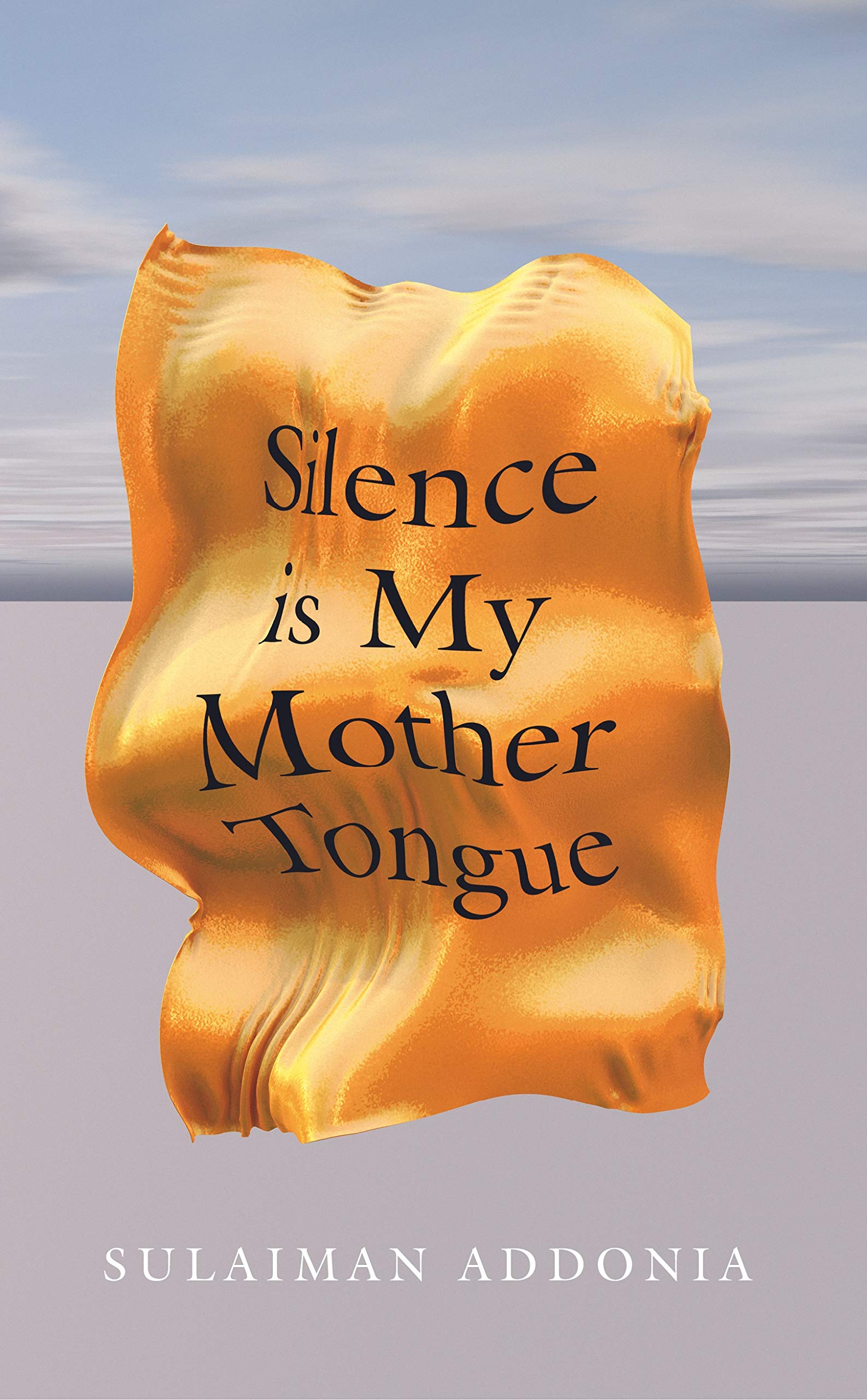
 Thu 28th February 2019
risc book club: silence is my mother tongueBy Sulaiman Addonia – Eritrea/Sudan
Thu 28th February 2019
risc book club: silence is my mother tongueBy Sulaiman Addonia – Eritrea/Sudan
Saba arrives in an East African refugee camp as a young girl, devastated to have had to abandon her books as her family fled. In this crowded and often hostile place, she must carve out her new existence, always protecting her mute brother Hagos.
A moving portrait of a woman of courage and intelligence, an insider’s view of the textures of life in a refugee camp, and a compelling story of exile, survival and love, Silence is My Mother Tongue bears vivid testimony to the power of imagination and illusion and the infinite reach of human minds to reinvent themselves. This subversive and sensual novel dissects society’s ability to wage war on its own women and explores the stories we must tell to survive in a broken, inhospitable environment. 308pp -
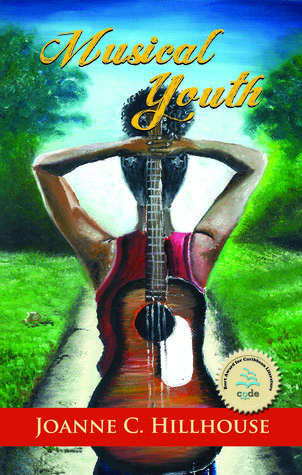
 Thu 31st January 2019
risc book club: musical youthBy Joanne Hillhouse – Antigua/Barbados. Zahara is a loner. She's brilliant on the guitar but in everyday life she doesn't really fit in. Then she meets Shaka, himself a musical genius and the first boy who really gets her. They discover that they share a special bond, their passion for music, and Zahara finds herself a part, not just of Shaka's life, but also that of his boys, the Lion Crew. When they all get roles in a summer musical, Zahara, Shaka, and the rest of the Lion Crew use the opportunity to work on a secret project. But the Crew gets much more than they bargained for when they uncover a dark secret linking Shaka and Zahara's families and they're forced to confront some uncomfortable truths about class, colour, and relationships on the Caribbean island of Antigua. 280pp
Thu 31st January 2019
risc book club: musical youthBy Joanne Hillhouse – Antigua/Barbados. Zahara is a loner. She's brilliant on the guitar but in everyday life she doesn't really fit in. Then she meets Shaka, himself a musical genius and the first boy who really gets her. They discover that they share a special bond, their passion for music, and Zahara finds herself a part, not just of Shaka's life, but also that of his boys, the Lion Crew. When they all get roles in a summer musical, Zahara, Shaka, and the rest of the Lion Crew use the opportunity to work on a secret project. But the Crew gets much more than they bargained for when they uncover a dark secret linking Shaka and Zahara's families and they're forced to confront some uncomfortable truths about class, colour, and relationships on the Caribbean island of Antigua. 280pp -
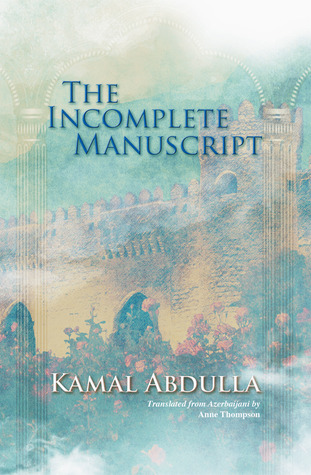
 Thu 20th December 2018
risc book club: The Incomplete ManuscriptBy Kamal Abdullayev - Azerbaijan. Translated from Azerbaijani by Anne Thompson, this is a novel narrating the imaginary life of medieval icons. When a young researcher accidentally comes across a manuscript in the Manuscripts Institute, he discovers the unexpected but well-known epic Kitabi Dada Korkud, combined with the history of Azerbaijani shah and poet Shah Ismail's life set in an entirely new interpretation. 210pp
Thu 20th December 2018
risc book club: The Incomplete ManuscriptBy Kamal Abdullayev - Azerbaijan. Translated from Azerbaijani by Anne Thompson, this is a novel narrating the imaginary life of medieval icons. When a young researcher accidentally comes across a manuscript in the Manuscripts Institute, he discovers the unexpected but well-known epic Kitabi Dada Korkud, combined with the history of Azerbaijani shah and poet Shah Ismail's life set in an entirely new interpretation. 210pp -
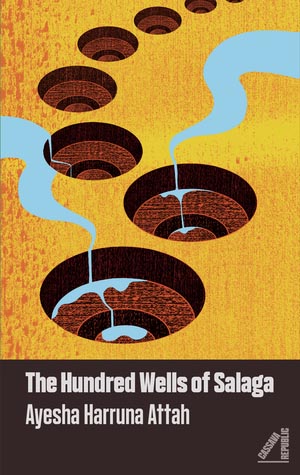
 Thu 29th November 2018
risc book club: The Hundred Wells of SalagaBy Ayesha Haruna Attah – Ghana. Aminah lives an idyllic life until she is brutally separated from her home and forced on a journey that turns her from a daydreamer into a resilient woman. Wurche, the willful daughter of a chief, is desperate to play an important role in her father's court. These two women's lives converge as infighting among Wurche's people threatens the region, during the height of the slave trade at the end of the 19th century. Set in pre-colonial Ghana, The Hundred Wells of Salaga is a story of courage, forgiveness, love and freedom. Through the experiences of Aminah and Wurche, it offers a remarkable view of slavery and how the scramble for Africa affected the lives of everyday people. 234pp
Thu 29th November 2018
risc book club: The Hundred Wells of SalagaBy Ayesha Haruna Attah – Ghana. Aminah lives an idyllic life until she is brutally separated from her home and forced on a journey that turns her from a daydreamer into a resilient woman. Wurche, the willful daughter of a chief, is desperate to play an important role in her father's court. These two women's lives converge as infighting among Wurche's people threatens the region, during the height of the slave trade at the end of the 19th century. Set in pre-colonial Ghana, The Hundred Wells of Salaga is a story of courage, forgiveness, love and freedom. Through the experiences of Aminah and Wurche, it offers a remarkable view of slavery and how the scramble for Africa affected the lives of everyday people. 234pp -
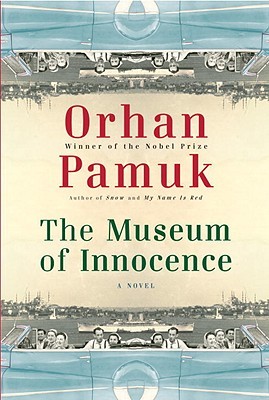
 Thu 25th October 2018
risc book club: The Museum of InnocenceBy Orhan Pamuk - Turkey. The Museum of Innocence - set in Istanbul between 1975 and today - tells the story of Kemal, the son of one of Istanbul's richest families, and of his obsessive love for a poor and distant relation, the beautiful Fusun, who is a shop-girl in a small boutique. In his romantic pursuit of Füsun over the next eight years, Kemal compulsively amasses a collection of objects that chronicles his lovelorn progress-a museum that is both a map of a society and of his heart. The novel depicts a panoramic view of life in Istanbul as it chronicles this long, obsessive love affair; and Pamuk beautifully captures the identity crisis experienced by Istanbul's upper classes that find themselves caught between traditional and westernised ways of being. 752pp
Thu 25th October 2018
risc book club: The Museum of InnocenceBy Orhan Pamuk - Turkey. The Museum of Innocence - set in Istanbul between 1975 and today - tells the story of Kemal, the son of one of Istanbul's richest families, and of his obsessive love for a poor and distant relation, the beautiful Fusun, who is a shop-girl in a small boutique. In his romantic pursuit of Füsun over the next eight years, Kemal compulsively amasses a collection of objects that chronicles his lovelorn progress-a museum that is both a map of a society and of his heart. The novel depicts a panoramic view of life in Istanbul as it chronicles this long, obsessive love affair; and Pamuk beautifully captures the identity crisis experienced by Istanbul's upper classes that find themselves caught between traditional and westernised ways of being. 752pp -
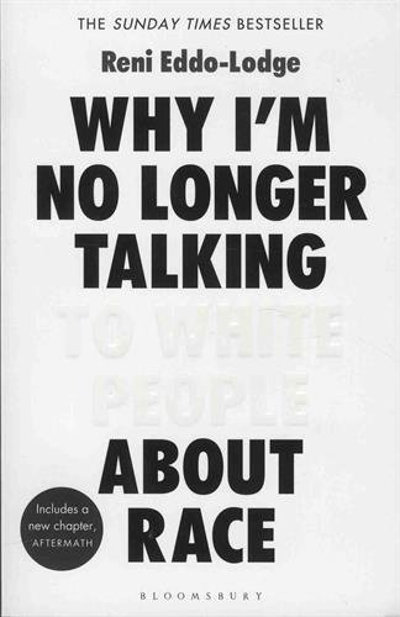
 Thu 27th September 2018
risc book club: Why I’m No Longer Talking to White People about RaceBy Reni Eddo-Lodge – UK
Thu 27th September 2018
risc book club: Why I’m No Longer Talking to White People about RaceBy Reni Eddo-Lodge – UK
Writing on black life in Britain has long been the poor relation of its African American equivalent, not least because, in the hierarchy of suffering, the daily slights endured by black Britons do not bear comparison to the existential threat to African American lives. She’s strong on the pervasive racial marginalisation of black people, for example in the depiction of the working class that still so often comes with the prefix “white”. It’s striking that the discourse on race today is stronger in tone than in the 70s suburban world in which I grew up, where British people were (usually) polite to the point of rudeness; the stakes are higher now. 288pp -
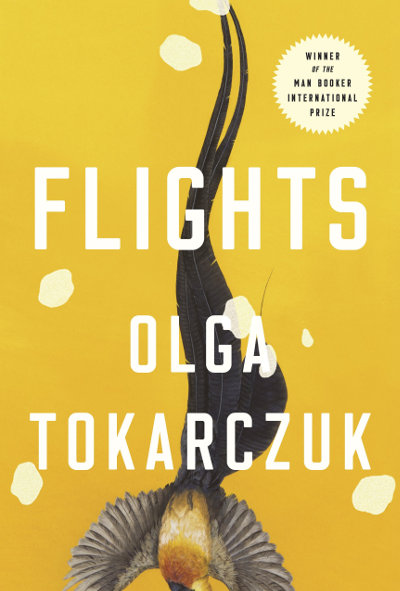
 Thu 30th August 2018
risc book club: flightsBy Olga Tokarczuk – Poland
Thu 30th August 2018
risc book club: flightsBy Olga Tokarczuk – Poland
Flights interweaves travel narratives and reflections on travel with an in-depth exploration of the human body, broaching life, death, motion, and migration. From the seventeenth century, we have the story of the Dutch anatomist Philip Verheyen, who dissected and drew pictures of his own amputated leg. From the eighteenth century, we have the story of a North African-born slave turned Austrian courtier stuffed and put on display after his death. In the nineteenth century, we follow Chopin's heart as it makes the covert journey from Paris to Warsaw. In the present we have the trials of a wife accompanying her much older husband as he teaches a course on a cruise ship in the Greek islands, and the harrowing story of a young husband whose wife and child mysteriously vanish on a holiday on a Croatian island. 432pp -
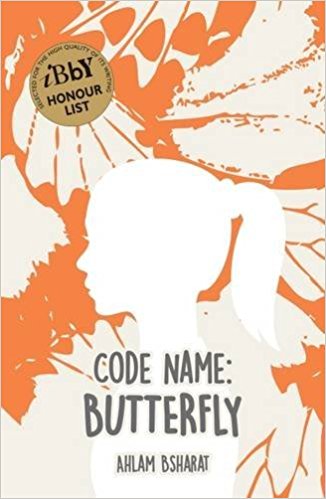
 Thu 26th July 2018
risc book club: codename butterflyBy Ahlam Bsharat (tr Nancy Roberts) – Palestine
Thu 26th July 2018
risc book club: codename butterflyBy Ahlam Bsharat (tr Nancy Roberts) – Palestine
A young adult book. With irony and poignant teenage idealism, Butterfly draws us into her world of adult hypocrisy, sibling rivalries, girlfriends' power plays, unrequited love...not to mention the political tension of life under occupation. As she observes her fragile environment with all its conflicts, Butterfly is compelled to question everything around her. Is her father a collaborator for the occupiers? Will Nizar ever give her the sign she's waiting for? How will her friendship with the activist Mays and the airhead Haya survive the unpredictable storms ahead? And why is 'honour' such a dangerous word, anyway? -
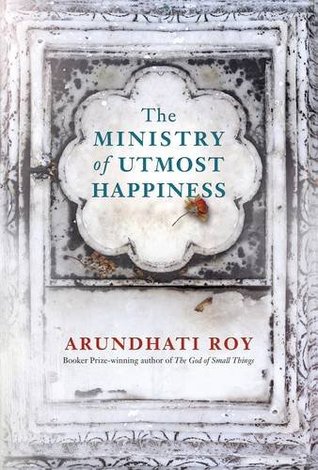
 Thu 28th June 2018
risc book club: the ministry of utmost happinessBy Arundhati Roy – India
Thu 28th June 2018
risc book club: the ministry of utmost happinessBy Arundhati Roy – India
In a graveyard outside the walls of Old Delhi, a resident unrolls a threadbare Persian carpet. On a concrete sidewalk, a baby suddenly appears, just after midnight. In a snowy valley, a bereaved father writes a letter to his five-year-old daughter about the people who came to her funeral. In a second-floor apartment, a lone woman chain-smokes as she reads through her old notebooks. At the Jannat Guest House, two people who have known each other all their lives sleep with their arms wrapped around each other, as though they have just met. A braided narrative of astonishing force and originality, The Ministry of Utmost Happiness is at once a love story and a provocation-a novel as inventive as it is emotionally engaging. It is told with a whisper, in a shout, through joyous tears and sometimes with a bitter laugh. Its heroes, both present and departed, have been broken by the world we live in-and then mended by love. For this reason, they will never surrender. -
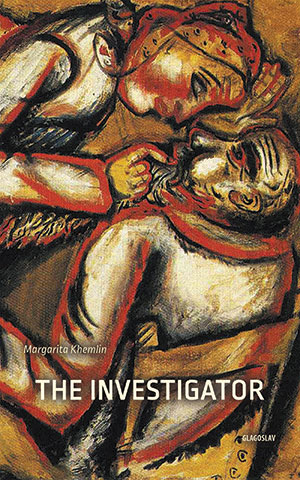
 Thu 31st May 2018
risc book club: the investigatorBy Margarita Khemlin (tr Melanie Moore) - Ukraine
Thu 31st May 2018
risc book club: the investigatorBy Margarita Khemlin (tr Melanie Moore) - Ukraine
Set in the Ukrainian SSR, The Investigator is rooted in a specific time and place. Lilia Vorobeichik’s death is given as 18 May 1952, barely 10 months before the death of Stalin, whose rule brought untold suffering to the region. The forced collectivization of the late 1920s and ensuing Holodomor, a man-made famine that claimed the lives of up to seven million Ukrainians, was swiftly followed by the brutal Nazi occupation. One of The Investigator’s most arresting features is the powerful vignettes Khemlin weaves out of the community’s recent past, often dropped almost casually into conversation. One woman witnessed the Nazis burning children alive; another remembers that during the famine people were “raking the last seeds of grain from under little children’s pillows on an order from above.” Still another speaks scornfully about the upsurge in weddings that followed the famine: people were “drinking too much out of sheer joy at being alive.
Note: Melanie Moore is a ‘distance member’ of our group. We’ve been waiting for this for ages -
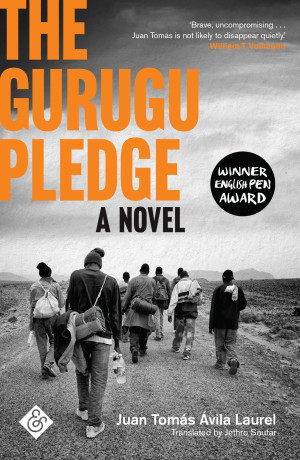
 Thu 26th April 2018
risc book club: the gurugu pledgeBy Juan Tomas Avila Laurel - Melilla
Thu 26th April 2018
risc book club: the gurugu pledgeBy Juan Tomas Avila Laurel - Melilla
On Mount Gurugu, overlooking the Spanish enclave of Melilla on the North African coast, desperate migrants gather before attempting to scale the city’s walls and gain asylum on European soil. Inspired by first-hand accounts, Juan Tomás Ávila Laurel has written an urgent novel, by turns funny and sad, bringing a distinctly African perspective to a major issue of our time.
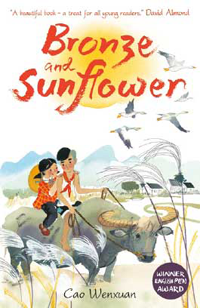 |
Bronze and Sunflower by Cao Wenxuan 26th January 2017 19:30 - Room 1 |
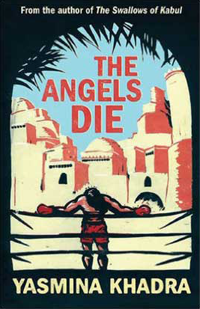 |
The Angels Die by Yasmina Khadra December 2016 |
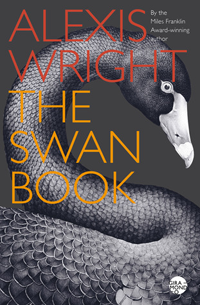 |
The Swan Book by Alexis Wright November 2016 |
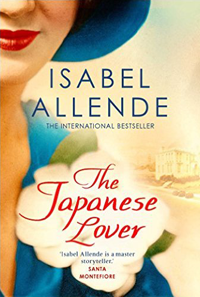 |
The Japanese Lover by Isabel Allende October 2016 |
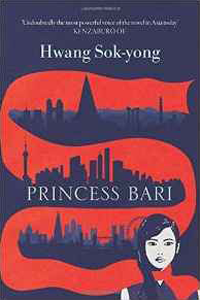 |
Princess Bari by Hwang Sok-yong September 2016 |
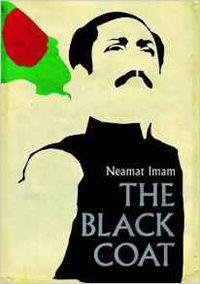 |
The Black Coat by Neamat Imam July 2016 |
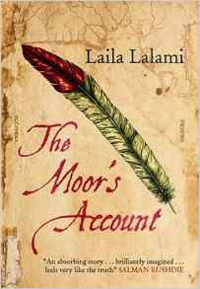 |
The Moor's Account by Laila Lalami June 2016 |
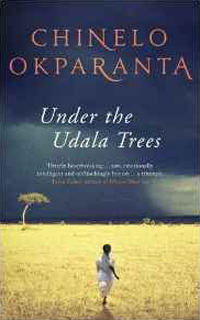 |
Under the Udala Trees by Chinelo Okparanta May 2016 |
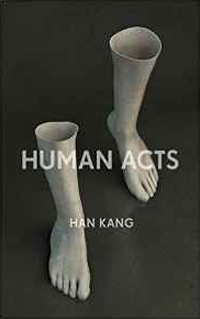 |
Human Acts by Han Kang April 2016 |
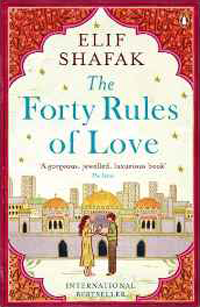 |
The Forty Rules of Love by Elif Shafak March 2016 |
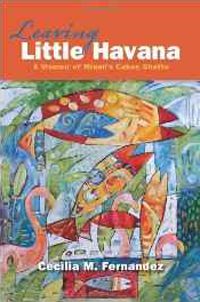 |
Leaving Little Havana by Cecila M. Fernandez 2016 |
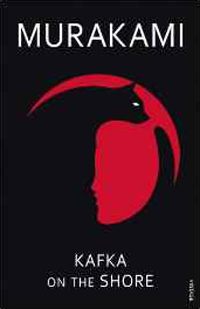 |
Kafka on the Shore by Murakami 2016 |
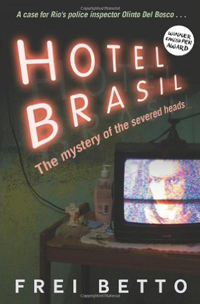 |
Hotel Brasil by Frei Betto 2015 |
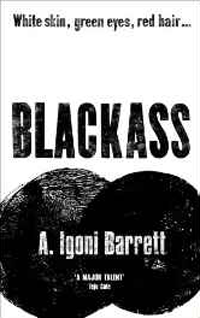 |
Blacks by A. Igoni Barrett 2015 |
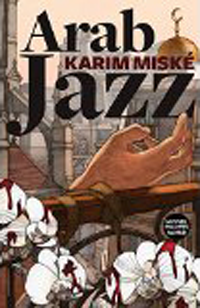 |
Arab Jazz by Karim Miske 2015 |
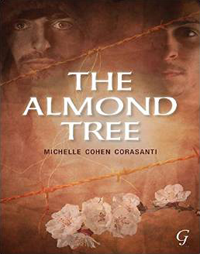 |
The Almond Tree by Michelle Cohen Corasanti 2015 |
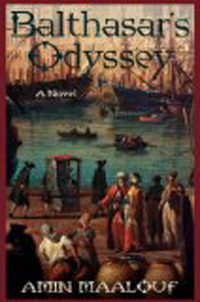 |
Balthasar's Odyssey by Amin Malouf August 2015 |
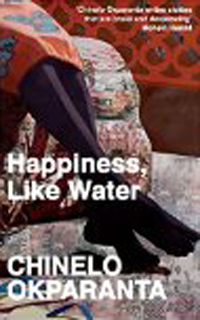 |
Happiness Like Water by Chinelo Okparanta July 2015 |
 |
The Man Who Loved Dogs by Leonardo Padura June 2015 |
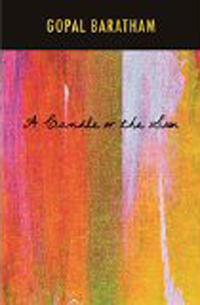 |
A Candle or the Sun by Gopal Bartham May 2015 |
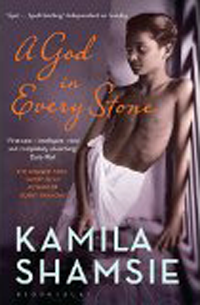 |
A God in Every Stone by Kamila Shamsie April 2015 |
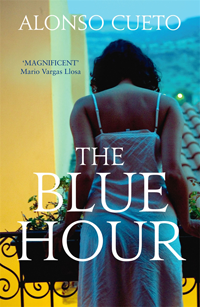 |
The Blue Hour by Alonso Cueto March 2015 |
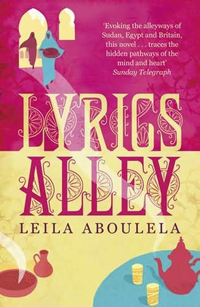 |
Lyrics Alley by Leila Aboulela February 2015 |
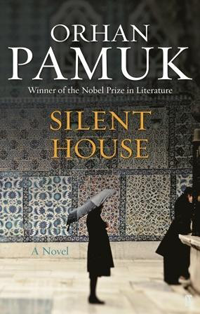 |
Silent House by Orhan Pamuk January 2015 |
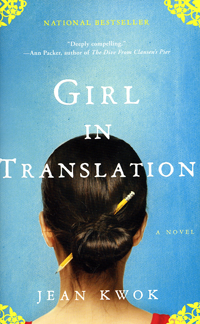 |
Girl in Translation by Jean Kwok December 2014 |
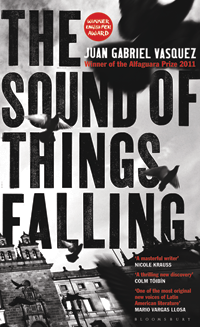 |
The Sound of Things Falling by Juan Gabriel Vasquez November 2014 |
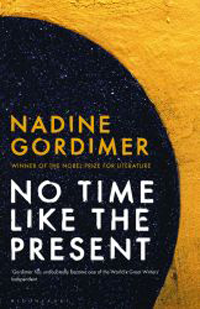 |
No Time Like the Present by Nadine Gordimer October 2014 |
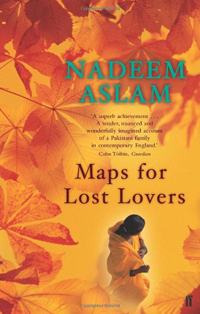 |
Maps for Lost Lovers by Nadeem Aslam September 2014 |
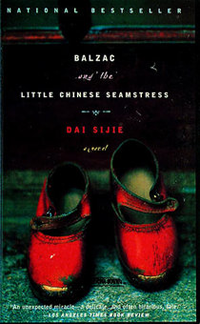 |
Balzac and the little Chinese Seamstress by Sijie Dai July 2014 |
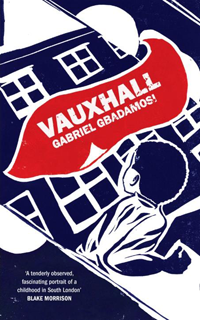 |
Vauxhall by Gabriel Gbadamosi June 2014 |
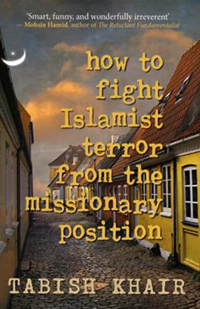 |
How to Fight Islamist Terror from the Missionary Position (A novel) by Tabish Khair May 2014 |
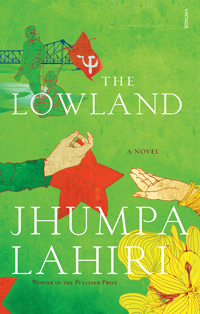 |
The Lowland by Jhumpa Lahiri April 2014 |
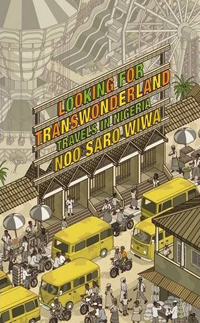 |
Looking for Transwonderland by Noo Saro-Wiwa July 2013 |
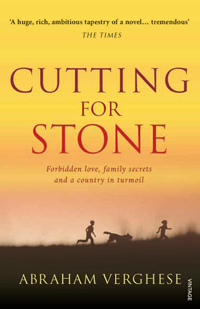 |
Cutting For Stone by Abraham Verghese June 2013 |
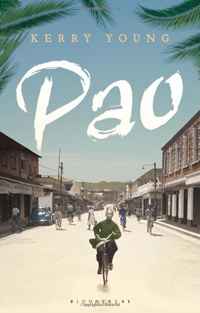 |
Pao by Kerry Young 2013 |
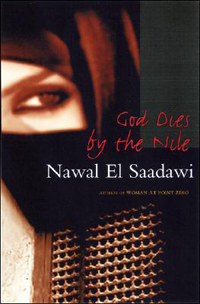 |
God Dies by the Nile by Nawal El Saadawi 2013 |
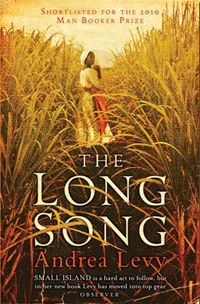 |
The Long Song by Andrea Levy 2013 |
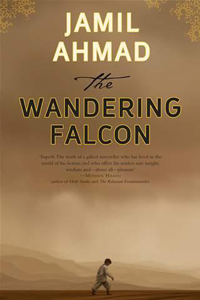 |
The Wandering Falcon by Jamil Ahmad 2013 |
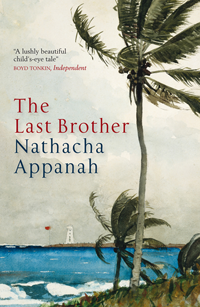 |
The Last Brother by Nathacha Appanah 2013 |
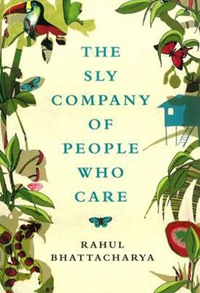 |
The Sly Company of People Who Care by Rahul Bhattacharya 2013 |
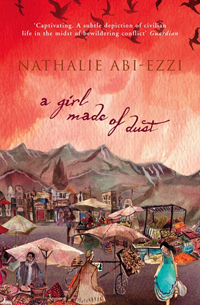 |
A Girl Made of Dust by Nathalie Abi-Ezzi 2013 |
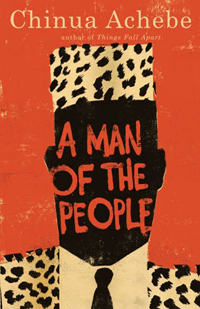 |
A Man of the People by Chinua Achebe 2013 |
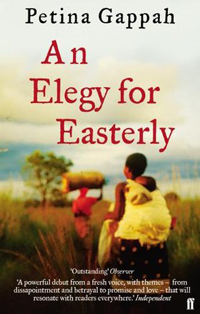 |
An Elegy for Easterly by Petina Gappah 2013 |
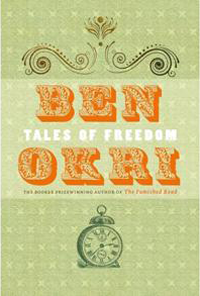 |
Tales of Freedom by Ben Okri 2013 |
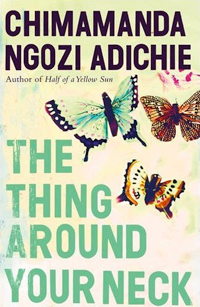 |
The Thing Around Your Neck by Chimamanda Ngozi Adichie "I really liked this book. I don't normally read short stories, but each story seemed like another little piece of her personality, or her story, told in such a beautiful way. She is an expert story teller, and even though you don't necessarily identify personally with every tale, there's something to grips you, or lingers with you, or moves you in every single story. I am looking forward to what this author produces next..." Bookclub member May 2010 |
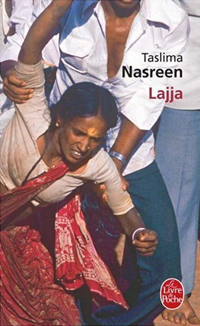 |
Lajja by Taslima Nasrin "This tale of Hindu oppression in post-independence Bangladesh is urgent, political, message-based fiction. As a piece of fiction it compares very badly to other novels with analogous social content like Half of a Yellow Sun (Biafra), Mornings in Jenin (Palestine) or Shalimar the Clown (Kashmir) which manage to illuminate issues and have literary quality. However to be fair these books were all written from the diaspora with the safety of distance and the perspective of time and to finish Lajja I had to set aside its crudity as a novel and read it as a different kind of work. Lajja deals with the journey of Suranjan from a fierce commitment to remaining in Bangladesh as a minority in spite of rising turmoil, to his hopelessness and flight to India. Initially eschewing identity labels, Suranjan is gradually forced into an externally-imposed Hindu identity despite his atheism. Competing layers of identity are wrestled with in the young state: cultural or linguistic communities; perceived ethnicity; religion; state. Of these, Nasreen privileges ethnicity, claiming Bengali-ness perceived as ‘race’ as the best basis for the state. What she does not make explicit is why choosing any one of these layers as the basis for harmony or belonging is any less spurious than all of the others. Where in Nigeria the evils of communalism would refer to race, and in Pakistan religion would be seen as a unifying force in a multi-nation, multilingual state, Nasreen derides religious identity without interrogating whether race is any more moral. She also ignores the role of class in the conflict almost entirely, mentioning briefly at the very end that Hindus have owned the majority of the agricultural land despite most farmers being Muslim. The potentially exploitative role of a land-owning class is treated as irrelevant in the tensions. As a character Suranjan also leaves an impression of a spoilt bourgeois who is mostly mourning his loss of affluence and the country mansion. While I found this crude, shrill, partisan and containing no intelligent defence for race-based nationalism, it held my interest and gave a glimpse of the tone of inter-community relations in Bangladesh." Bookclub member April 2010 |
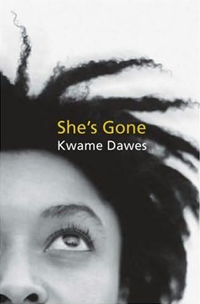 |
She's Gone by Kwame Dawes "I'm sorry but I really didn't enjoy this book. I had to force myself to finish it, and most of it just made me cross! I found most of the characters incredibly stereotypical, and the plot was dull and lifeless. A really superficial, irritating read!" Bookclub member November 2009 |
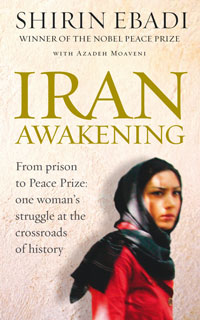 |
Iran Awakening by Shirin Ebadi "This is a fascinating read, I've never learnt so much about a place from a book as I did from this. The history lesson is cleverly disguised in what can only be described as one of the most amazing women in the world's story. Ebadi, winner of the nobel peace prize, has fought against the kind of adversity that most of us can never really imagine, and seems to be winning, bit by bit. A genuinely interesting, powerful and empowering read. I would recommend this to anyone, and suggest to everyone that we find out about other countries, through the eyes of their people." Bookclub Member Feb 2009 |
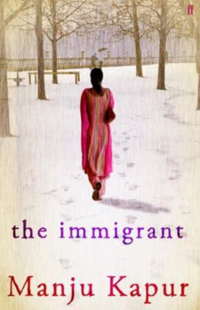 |
The Immigrant by Manju Kapur "Sheltered, obedient dentist Ananda migrates from small town India to Canada after the sudden death of his parents. Living initially with his uncle while he requalifies, Ananda is unwillingly coaxed into a frugal and timid independence. Despite the will to integrate he fails to take risks, find a girlfriend or confront an unexplored sexual dysfunction, eventually opting for the safer alternative of a transnational arranged marriage. Nina is 30, works as a lecturer in Delhi, supports her mother and is best friends with a free-thinking 40-something divorcee. Despite her independence, the weight of expectation to marry and have children before it is too late eats away at her until she succumbs gratefully to marriage and a new life with Ananda. What might end the tale is merely the start of this detailed and often painful dissection of an ill-fated marriage between people who have sought a spouse to compensate for other shortcomings. A compelling read, not without sympathy or hope." Bookclub Member, Nov 2008 |
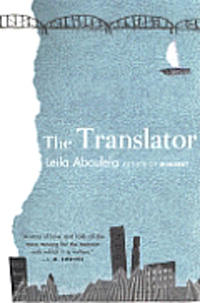 |
The Translator by Leila Aboulela "I enjoyed the vivid simplicity of the writing and found the two protagonists and their love across religious lines beautifully drawn, but part of what appears through this clarity of writing is the author's failure to ascribe humanity or depth to those outside her own camp. Her exile in Scotland is peopled with shadowy half-figures with whom we are offered no connection and in whom she takes little interest. I suppose I would recommend it as an exercise in understanding a world view you may not agree with and liking the person while not liking their views." Bookclub Member, Feb 2008 |